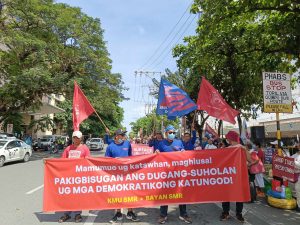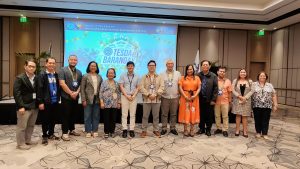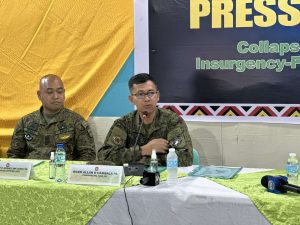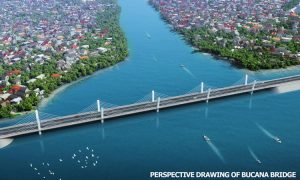THE CITY Social Welfare and Development Office (CSWDO) and the Department of Transportation (DoTr) will continue to hold consultations with stakeholders, including the indigenous peoples, on the government’s implementation of the High Priority Bus System (HPBS) project.
Lawyer Marlisa Gallo, the head of the CSWDO, in an interview with the City Information Office (CIO), said that consultations with all stakeholders were conducted in coordination with the barangay officials and other concerned agencies. However, these were halted due to the evolving COVID-19, dismissing claims that the government did not consult communities, especially the IPs, affected by the HPBS.
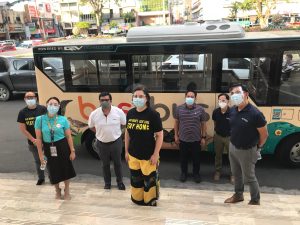
“Last year pa naghinay-hinay nata og adto sa ground. Naabtan man gud ta sa pandemic, mao na nga naundang, pero last year ang atoang staff ilabi na ang taga-DOTR naka-focus gyud to sila sa mga barangay. Nagpadala pud ta og advocacy materials sa ilaha (We have slowly resumed consultations on the ground since last year. The consultations were halted due to the pandemic but last year our staff and the DoTr have been focussing on the barangays. We also gave out advocacy materials to them),” she said.
Gallo said that there will be more consultations meant to popularize HPBS more and give stakeholders a chance to address their concerns.
“Ipaabot nato sa atoang social workers sa barangay level na naa ta’y pagabuhaton na pakighinabi sa ilaha aron madungog pud nato unsa ang ilahang gusto mahitabo sa proyekto sa gobyerno (We will relay through our social workers in the barangay level that we will have dialogue so that we can also hear their side on what they want for this government project,” Gallo said.
Meanwhile, DoTr community development officer Erika Nicole Cue, in a separate interview with the CIO, said that a special consultation meeting with Indigenous Peoples (IP) was held on Oct. 15, 2021, at the Almacen Training Center gym in Barangay Catalunan Pequeno.
The meeting which highlighted the project overview, components, and environmental and social, impact assessment of HPBS was attended by 21 individuals from the IP communities namely the Ata Tribe, Tagabawa, Obu Manuvu, Matigsalug, Bagobo-Tagabawa, and Bagobo Klata.
“They were also informed that the IP communities will be affected by bus stops only and no major physical displacement will happen to those communities,” Cue said.
Cue said the Free and Prior informed Consent Process or the FPIC resulted in the awarding of the Certificate of Precondition to the HPBS project by the NCIP.
The NCIP, according to Cue, also extended its appreciation to the project in the initial meetings because the HPBS project provides access for IP communities to public transport.
“The implementers of the HPBS project constantly remind the public and ourselves that no one will be left behind on our road to progress and development. We are working hard to ensure as well that this project will be inclusive to all sectors of the city,” Cue said.
Cue said that a total of 1,076 bus stops are planned to be built across Davao City, of which 993 are public lands within the Department of Public Works and Highways (DPWH) asset, 40 are identified as private lands, and 43 are ongoing identification of landowners since there are no records of land ownership found in government records.
The HPBS project includes six depots, three terminals, bus stops, signal priority, bus lanes, pedestrian and street improvements, electric bus feasibility, and franchise operations. The full operation of HPBS is targeted for the 4th quarter of 2023.
With this project, 29 routes across the city are to be divided into four route tiers that will cater to 1,040 new buses replacing the existing jeepney network in the area.

